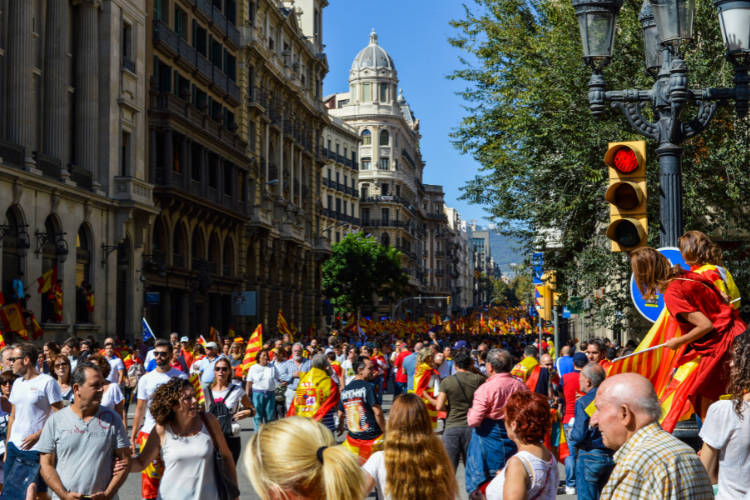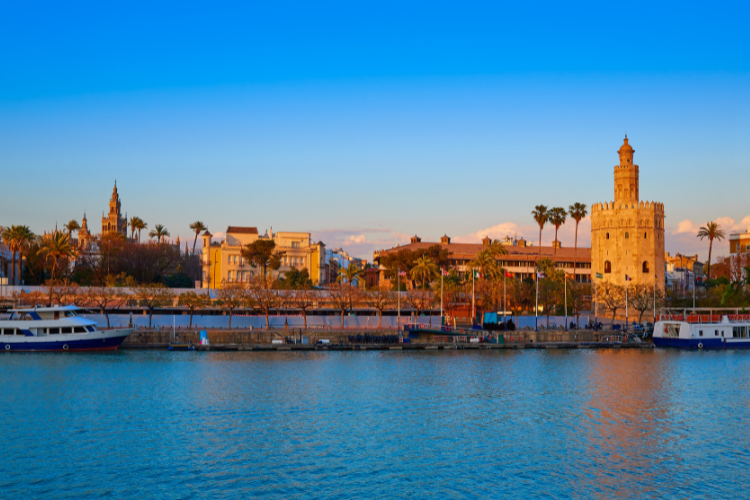Last Updated on October 24, 2024 by Maryam Siddiqui
As a parent, the first thing you do is ensure that your children feel welcome in a new country. It’s quite natural for expats to look for quality education and an environment that will nurture growth. This article will help you understand how public schools in Portugal offer a conducive learning environment for your children.
Keep reading to learn how Portugal’s public education system works and the key differences between the two systems. We’ll also review a list of Portugal’s best public schools and the enrollment process.
How do public schools in Portugal work?
Relocating to Portugal comes with challenges, but thankfully, we have a community here to help you. Before enrolling your children in a school, knowing the differences between public and private schools is better.
The structure of schooling is divided into two parts; Basic and Secondary education. Here are the details of each:
Basic Education
Basic Education, or Primary Education, is completely free and has a universal curriculum that’s easy to follow. It’s also compulsory to attain Basic Education, after which you may proceed to Secondary Education.

The aim is to acquire skills and fundamental knowledge that enhance comprehension and excellence. The years of Basic Education are divided as follows:
- First Cycle: Grades 1 to 4
- Second Cycle: Grades 5 and 6
- Third Cycle: Grades 7 to 9
Secondary Education
Secondary Education equals high school, which is essentially Grades 10 to 12. Students are encouraged to choose courses according to their preferences to make university education easier if they opt for it. One of the following fields is to be chosen:
- Language & Humanities
- Socioeconomic Sciences
- Sciences & Technology
- Art
At this stage, students have an idea of what career options they’d like to explore. Hence, it’s better to choose a field that is relevant to their interests. We also recommend giving your child the freedom to decide for themselves to motivate their personal growth.
Do public schools in Portugal teach in English?
All public education is done in Portuguese, but learning English is a mandatory part of the curriculum.
We understand that this language barrier might be a concern if your children are older. Some people prefer International Schools in Portugal to overcome the possible complications of not knowing the local language.
It’s important to note that expats from Britain, France, and the US have adapted pretty well to the lifestyle. Enrolling your children in a public school is particularly beneficial if you’ve decided to stay in the country for a long time.
Young minds learn Portuguese quickly and will feel a heightened sense of belonging once they can speak eloquently. Unlike other languages, Portuguese is relatively easier to understand.
- Read our article Learning Portuguese to know whether expats are bound to learn the local language.
Public school Vs International school in Portugal
There really isn’t a “Which one is better?” debate. Both choices are equally valid and have an excellent quality of education. Of course, it’s better to know why expats prefer one of the two over the other. We’ve helped you assess both options by preparing a list of pros for public and international schools:
Pros Of Enrolling Your Children In A Public School In Portugal
Let’s look at the most popular reasons why expats prefer enrolling their children in a public school:
✔️ Free of cost
Sometimes, the biggest deciding factor can be your financial circumstances. It’s a viable option to save on basic education expenses and invest in university fees later.
Plus, expats already have a lot of expenses lined up during relocation, from housing, food, and transportation to other necessities. By offering free public schools, Portugal helps alleviate some of the financial burdens of education and helps families save money.
Also, children from all socio-economic backgrounds can access quality education. This free-of-cost education actually helps promote diverse opportunities for your child.
✔️ They’ll dive into Portuguese culture
Relocating to a new country for the rest of your life can be a big decision. Getting to know the culture will help your children form lifelong connections and feel a sense of belonging. Starting primary education in Portuguese schools will help your child be closer to the culture and deeply understand things.
In public schools, expat children can make friends with local children. This can help them to integrate into the local community, feel more connected to their new home, and adapt to their new environment. The closeness to the culture can also help them learn the language at a faster pace during primary school.
✔️ Easier to learn the local language
As an expat, you might eventually have to learn the language at some point. By enrolling your children in a public school, you won’t have to spend on extra language classes. Learning Portuguese will also be significantly easier if they get a public education.
This is because public schools tend to provide intensive language classes. The more intense the class, the more exposure you will have to the language, which will make it easier to learn. Even so, it’s important to keep in mind that learning a language takes time, effort, and dedication, so try not to pressure yourself or your child.

Pros of enrolling your children in International Schools in Portugal
These are the most popular reasons why expats go for private and international schools instead of public schooling:
✔️ Education is in English
If your children are older, their performance might be hindered slightly if they’re unable to understand Portuguese yet. In this case, it may be a better decision to enroll your child in private primary schools or private secondary schools, depending on your child’s age.
If your child is enrolled in an English-speaking school, they can easily communicate with teachers, classmates, and other people in their daily lives. This can help reduce the language barrier and make the transition to a new country smoother.
Plus, these schools offer a high-quality education, with experienced teachers and a rigorous curriculum.
Shifting schools in the middle of their education is a big decision in itself. So, it may be better to go for a curriculum in the language they’re comfortable with.
Most expats relocate to Portugal when their child is above the age of primary education.
Let’s Move to Europe
With Viv Europe your plans for Europe will come to a reality
✔️ International curriculum
The school curriculum includes but is not limited to, the International Baccalaureate and the National Curriculum for England. International schools usually have higher budgets to spend on their facilities and extra-curricular activities such as gardening, robotics, cooking, etc.
But the expenditure may be worth it as they are designed to be globally relevant so that expats can find a familiar educational approach to what they are comfortable with. This helps reduce culture shock and makes the transition to a new country smoother.
✔️ Connection to multicultural families
Many expats from different countries have enrolled their children in International schools after relocation. One reason is that they get to connect with families from various cultures, which encourages diversity.
And if you’re an expat from France or China, for example, there’s a higher chance of your child being around someone with the same nationality. This is an experience that goes beyond physical education; your child’s emotional intelligence is more likely to develop when they interact with different cultures.
It’s also a great opportunity for children to learn about different cultures and make friends from around the world. Exposure to multicultural families can help expat children develop a global mindset and a greater appreciation for cultural differences.
For example, though the children may learn about the local culture well in public schools, they would get a chance to additionally explore German or French culture in International schools.
- Check out the best international schools in our article International Schools in Lisbon to find the perfect option for your children.
How much do public schools cost in Portugal?
As mentioned in the list of pros above, public schools in Portugal are free of cost for citizens and expats. The government funds these schools, and all basic educational expenses are waived. Though the quality of public schools can vary greatly, some are well-reputed and ranked higher than private schools.
Parents are only required to pay for meals that are given during school lunch breaks. The standardized menu includes soup, meat/fish on alternate days, bread, and fruits/jelly for dessert. The total expense for school meals is around €2 per day.
What is needed to enroll a child in a public school in Portugal?
The enrollment process for public schools is between January and May before the next academic year begins. You can also choose to register your children online through the Portal das Matrículas which the government regulates. If you’re confused about the process, you may visit the public school in your metropolis for more information.
The procedure is standardized among all schools, but it’s better to check in with the school’s administration beforehand. Typically, you would need the following documents when enrolling your child.
- The enrollment form (provided by the school)
- Your child’s ID card or birth certificate
- One photograph of your child
- Immunization and vaccine records
Can children of non-regularized foreigners study in public schools in Portugal?
Yes, they can. Education is a right given to all non-regularized and regularized foreigners in Portugal. All students are encouraged to perform better and surpass the average scores.

The International Convention on the Protection of the Rights of All Migrants guarantees equal education opportunities for non-regularized foreign children.
What are the best public schools in Portugal?
There are various public schools all over the country, so you’ll find a decent option regardless of where you live.
However, people have made an interesting observation regarding children with better grades studying at school. Students of public schools located in Lisbon, central and northern Portugal, have better grades than the rest.
This isn’t to say that other public schools aren’t worth attending. Here is a list of the top 10 Portuguese public schools:
- Primary and Secondary School José Relvas, Santarém
- Quinta das Palmeiras Secondary School, Covilhã
- Secondary School Dr. Joao Lopes de Morais, Mortágua
- Alves Martins Secondary School, Viseu
- Infanta D. Maria Secondary School, Coimbra
- Tomaz Pelayo Secondary School, Porto
- Primary and Secondary School of Vale do Tamel, Lijó, Barcelos
- Elementary and Secondary School, Oliveira de Azemeis
- Elementary and Secondary School Dr. Oak scallop, Maya
- Elementary and Secondary School of Arga e Lima, Lanheses, Viana do Castelo
Rankings are based on Observador’s list of Best Public Schools (as of April 2023).
When does the school year start in Portugal?
While the admission process starts in January, the academic year officially begins in September and continues until mid-June. During this time, you can prepare your children for new challenges to help them overcome their initial hesitancy.
A few suggestions we’d offer are taking them to explore the city with you and socializing with children their age. This will ease them a bit before their public education starts.
Public schools also have sets of holidays during the year. There is a two-week Christmas and Easter break each and a few days for the Mardi Gras Carnival in February.
Do you need help bringing your family to Portugal?
This article summed up almost everything you needed to know about public schools in Portugal. If you have any questions regarding the academic experiences of expat children, join our Facebook Group – All About Portugal For Expats to connect with expats.
Alternatively, you can also shoot us a message any time you like! Our team at Viv Europe is here to make the relocation process seamless for you and your family. Book a consultation and get help with enrolling your child, family regrouping, or Visa processes.








